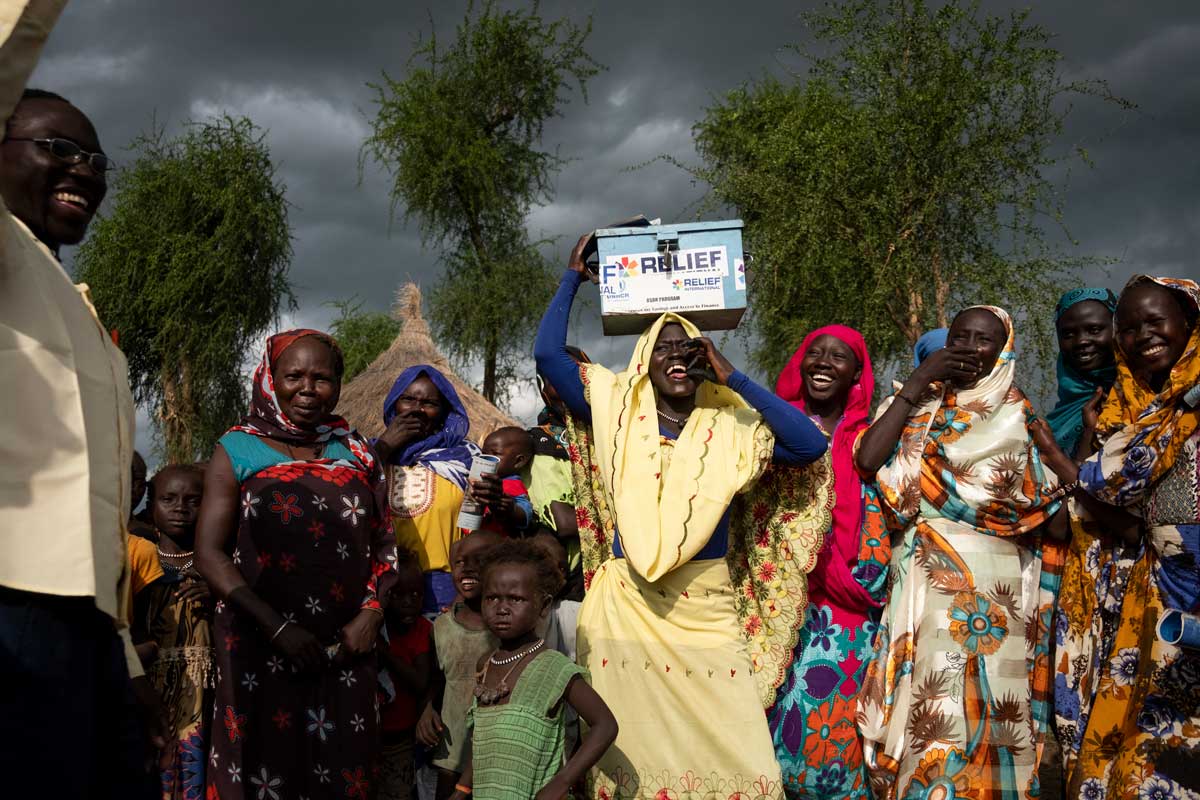The turquoise-blue metal box sits prominently atop a wooden table in the middle of the thatched-roof hut, never out of the sightline of any of the 20 members of the Village Savings and Loan Association group that have gathered for their monthly meeting. The box is the focal point of today’s discussion, and rightly so.
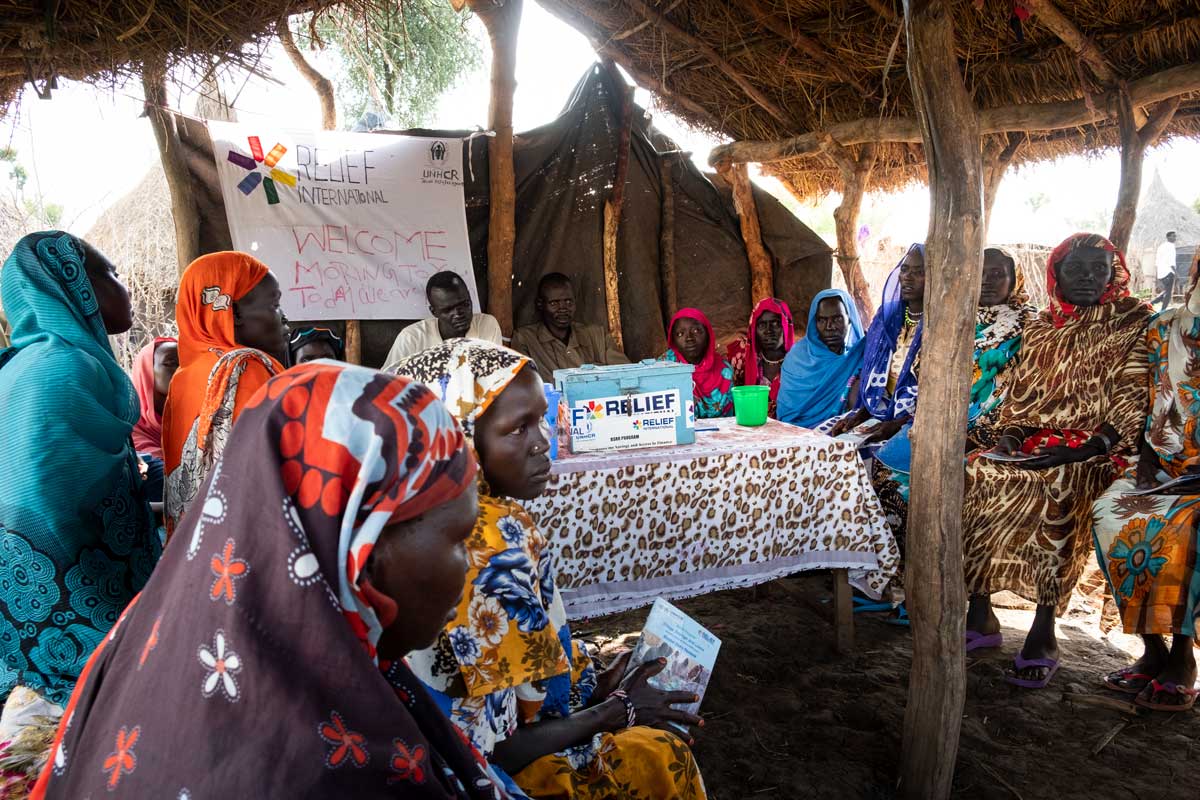
A Village Savings and Loan group holds their monthly meeting in Batil refugee camp.
© Elie Gardner/RI
Every person in this group is a refugee. For them, the cash inside the box is a lifeline in a foreign land where they have no access to banks or traditional lines of credit. It’s an insurance policy to cope when unplanned needs arise. It’s a promise of a future that’s more secure than the current uncertainties they face daily.
Relief International’s Village Savings and Loan program comprises sixty groups of approximately 20 members. The participants work together to mobilize savings and gain access to capital. All 1,200 members — of which more than 80% are women – live in Batil refugee camp, which is located in the Maban County border region in northeastern South Sudan. The camp is home to 46,000 people who fled violence and insecurity in Blue Nile state in neighboring Sudan. Most refugees made the month-long trek with only the belongings they could carry, and have lived in the camp since fighting forced them to leave in 2012.
Relief International provides each new group with training on the Village Savings and Loan model and a supply kit with a metal cash box, three padlocks, and member log books for recording the money they invest. The groups meet once a month to learn basic finance concepts, pool their money into a fund for borrowing, and manage earnings.
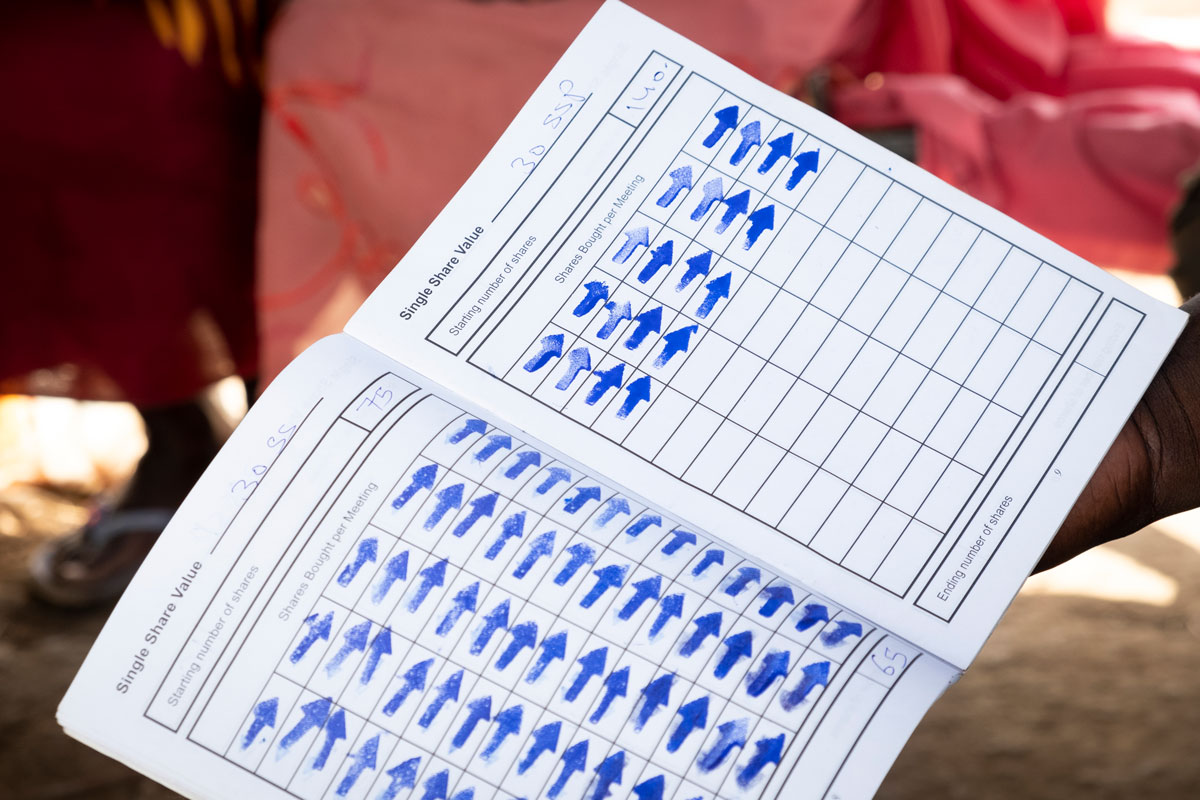
Members bring their log books to the meeting to keep a record of the funds they've invested.
© Elie Gardner/RI
After one month of participation, members are allowed to take out loans from the group. They are then paid back with interest ranging from 10%-40%; the amount is each group’s decision. This group determined that their interest rate would be 30%. And everyone partakes in the dividends. Every nine months, the group splits the interest raised from the loans that members have taken out.
Since the program began in 2016, the groups have mobilized total loan capital of more than 2,899,940 SSP (approximately USD $10,400). In the camp, this amount is the equivalent of purchasing 207 goats.
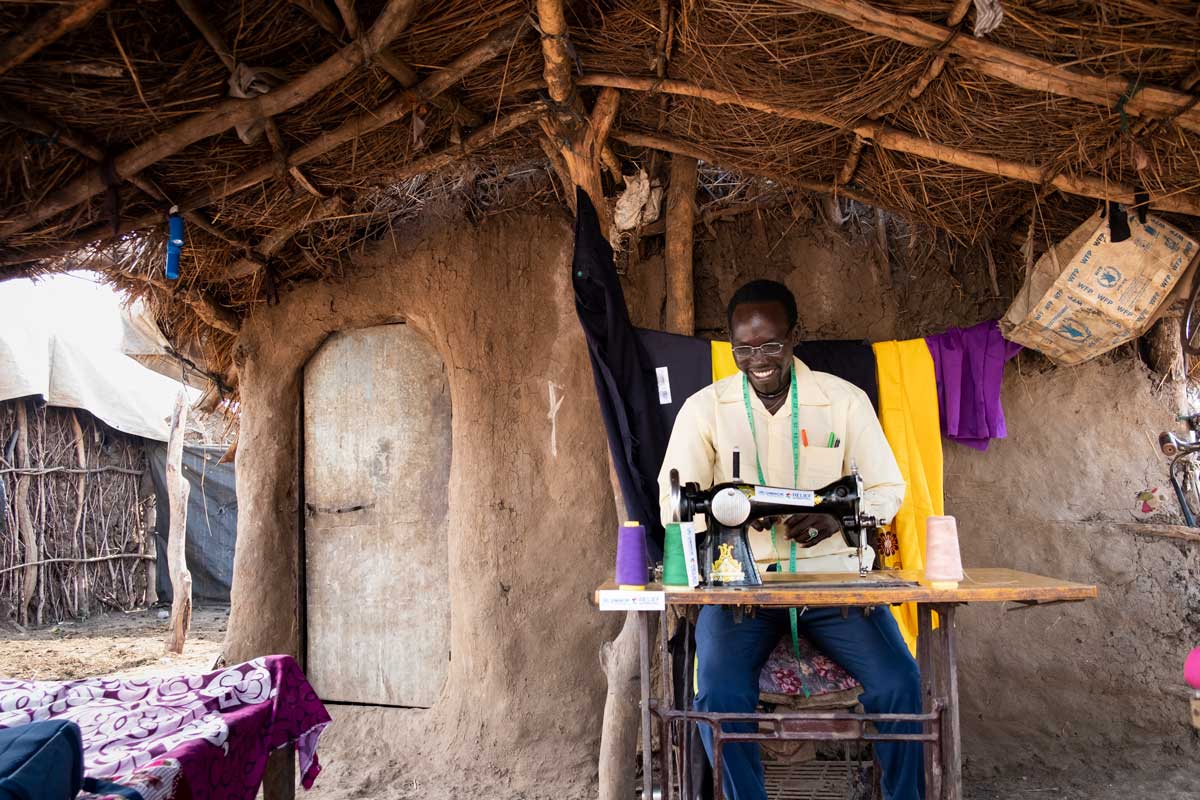
A friend in the camp taught 24-year-old refugee Sebit Anguk to sew. He used his loan to start a tailoring business that's now supporting his four children.
© Elie Gardner/RI
Investments Bring Sustainable Income for Members
A few members of this group have used loans to purchase livestock, as well as capital investments that can generate income for their families for years to come.
- Three thousand SSP (USD $11) purchased sorghum to resell. The profits bought a goat.
- Six thousand SSP (USD $21) set up a small retail shop. The profits bought a bicycle.
- Ten thousand SSP (USD $36) launched a tailoring business in the market. The profits bought a sewing machine.
- Twenty thousand SSP (USD $71) bought a calf. One day, the calf will produce milk and have babies to be sold for profit.
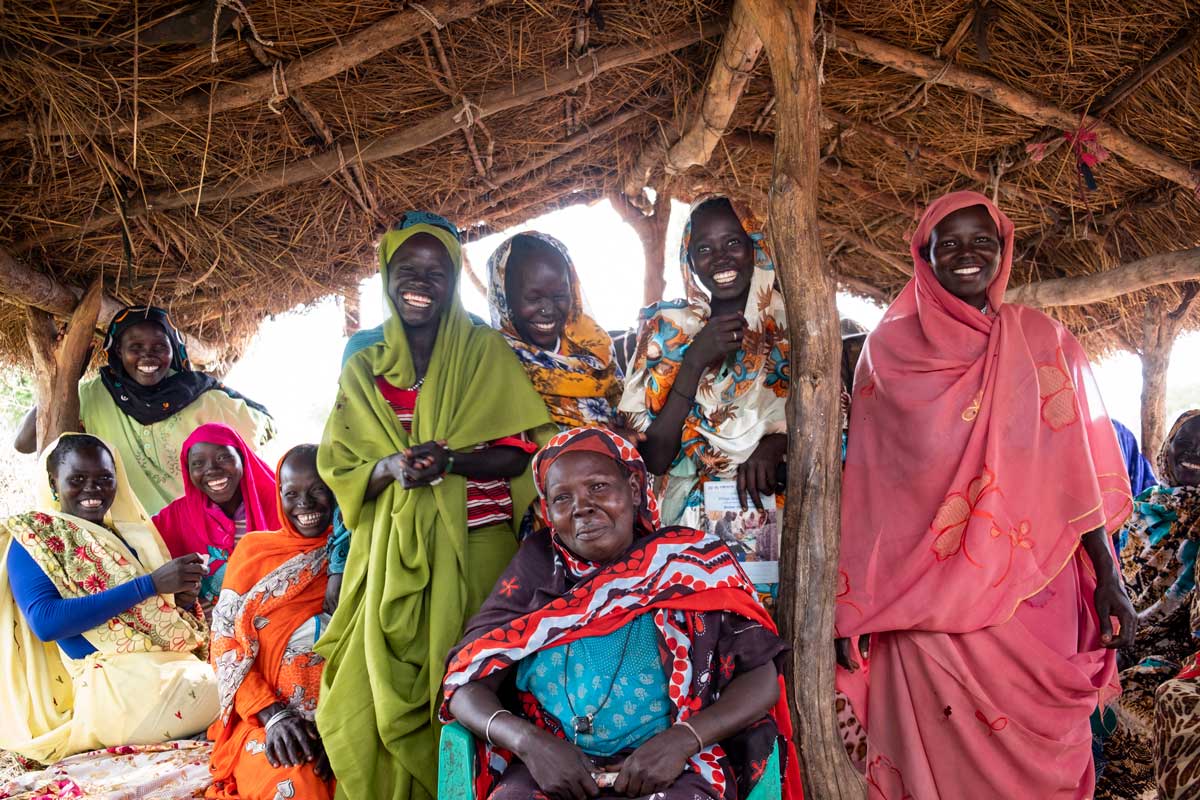
Limona Musa (seated center) is a refugee and the sole provider for her 9 children. She used her loan to buy a cow – the first she's ever owned.
© Elie Gardner/RI
This community-based microfinance model continues to provide a safety net of savings where none existed before. It’s also opening new income-generating pathways for hundreds of people that couldn’t otherwise access loans. And every member of the group earns a profit. Word of the dividends has spread to the three other refugee camps in the Maban area as well as the host communities, and numerous informal groups have now formed to reap the benefits of pooling their savings.
“It’s always difficult for refugees to get money,” says Yones Simon, Relief International’s Village Savings and Loan Project Officer. “This program has provided a way to mobilize money. Refugees make small money become big money and start up businesses that change their life.”
